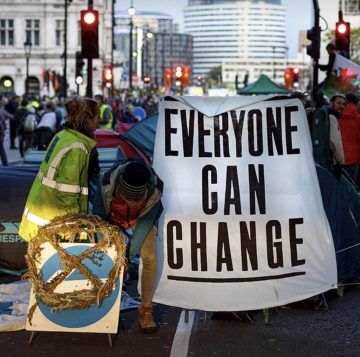Emilie Prattico in Aeon:
 And so, while the requirement for scientific and technical expertise about climate change cannot be denied, there are ways to reconcile this reality with the needs for inclusive, democratic processes about climate action. In his theory of deliberative democracy, the German philosopher Jürgen Habermas (1929-) provides a framework within which democratic processes can distinguish between the different dimensions of discourse – scientific-pragmatic and moral-political. In the context of climate change, this means that there are pathways to address the problem that don’t require scientific or technical expertise, and that are geared towards tackling the collective issues it raises democratically.
And so, while the requirement for scientific and technical expertise about climate change cannot be denied, there are ways to reconcile this reality with the needs for inclusive, democratic processes about climate action. In his theory of deliberative democracy, the German philosopher Jürgen Habermas (1929-) provides a framework within which democratic processes can distinguish between the different dimensions of discourse – scientific-pragmatic and moral-political. In the context of climate change, this means that there are pathways to address the problem that don’t require scientific or technical expertise, and that are geared towards tackling the collective issues it raises democratically.
Habermas’s version of deliberative politics is rooted in his theory of communicative action. There are several reasons for singling out Habermas here. First of all, the spectre of technocratic rule has guided his work since the 1960s. More significantly, however, Habermas has consistently recognised the value of the ‘substantive’ aspect of political decisions, setting him in a tradition of democratic thought concerned with finding the adequate balance between the democratic requirement of equal respect for each citizen and the recognition that the substantive and technical quality of citizens’ contributions varies.
More here.
